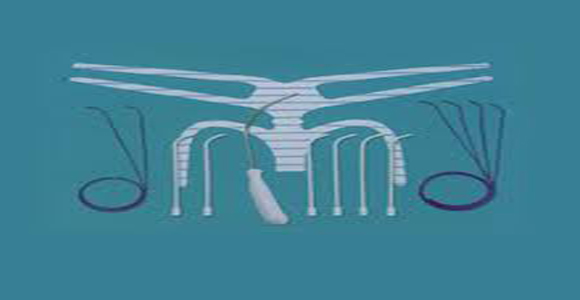C.R. Bard, the named Defendant in the Transvaginal Mesh Implant bellwether case which began in Charleston, West Virginia on Monday, July 8th , will have to face another jury. U.S. District Judge Joseph Goodwin stopped the trial in its second day after one of the gynecological experts strayed into testimony about the devices’ marketing and the fact that the product was eventually withdrawn from the market. Judge Goodwin had ruled earlier that the plaintiff’s experts were not permitted to discuss C.R. Bard’s withdrawal of its Transvaginal Mesh Implant products from the market last year.
The ruling of a mistrial has resulted in the trial be rescheduled for Monday, July 29, 2013. Judge Goodwin gave a brief comment on the ruling stating, “I don’t think it’s a bell that can be unrung. It would be very difficult for the jury to disregard.” Although the defense counsel craftily remark “We’re disappointed the plaintiff’s witness blurted what he did and forced us to ask for a mistrial,” the ruling of a mistrial is no reflection of the merit of the Plaintiff’s case, but merely an unavoidable technicality. If anything, the mistrial has given both sides more time which could be used for settlement talks.
The only unfortunate outcome arising from Judge Goodwin declaring a mistrial, is that the legal industry’s anticipation for a verdict will be slightly prolonged since the parties will have to start all over again on the July 29, 2013. Then, the newly selected jury will be the ones with the opportunity to hear how the plaintiff in the case, Ms. Donna Cisson, was implanted with C.R. Bard’s Avaulta Plus Posterior BioSynthetic Support System in May of 2009. As a result the implant of her Avaulta Plus Posterior BioSynthetic Support System, Cisson has endured both physical and mental pain, sustaining permanent injury along with permanent and substantial physical deformity. Additionally, Cisson’s needed undergo costly corrective surgeries and her loss of present and future lost wages has amounted to a significant economic loss for her family. Moreover, Cisson has suffered from impaired physical relations with her husband Dan, a co-plaintiff in the case, who himself has suffered a loss of his wife’s consortium and companionship.
The jury will also learn that Mrs. Cisson’s life altering injuries caused by her Transvaginal Mesh Implant manifested despite C.R. Bard’s strong assurances to the general public, hospitals and healthcare professionals that the Bard Avaulta Mesh was safe and effective for its intended purpose. But furthermore, those very assurances are what Mrs. Cisson, and most likely the thousands of other innocent women, as well as her healthcare providers relied upon in making the decision to have her implanted with C.R. Bard’s Avaulta Plus Posterior BioSynthetic Support System in the first place. The dangers and risks of these TVM and mesh implants has been discussed in detail over the last few years, but more information and review is still needed.
Additionally this new jury will also be tasked with determining whether the conduct of C.R. Bard warrants a verdict including significant punitive damages. The aforementioned conduct, which has been misleading at best, includes a spokesman for Bard informing Bloomberg News that the Avaulta Mesh is a “safe and effective treatment for pelvic organ prolapse when used in accordance with its instructions.” However, and in contrast to, unsealed case documents show that Bard executives were quite aware, and understood, that the plastic resin that makes up the polypropylene mesh material was not designed to be implanted in the human body. That information was contained in a “Material Safety Data Sheet” filed with the federal government by a unit of Chevron Phillips Chemical Company concerning the Marlex Polyproylene Material.
“Do not use this Phillips Sumika Polypropylene Co. material in medical applications involving brief or temporary implantation in the human body or contact with internal body fluids or tissues unless the material has been provided directly from Phillips Sumika Polypropylene Co. under an agreement that expressly acknowledges the contemplated use,” according to the warning.
To make the knowledge and conduct of the C.R. Bard officials even more suspect, the attorney for the Plaintiff added that in order to protect their supply of this plastic mesh material, (which is not produced for the purpose of and should not be used in “medical applications involving permanent implantation in the human body or permanent contact with internal body fluids or tissues” ) the Bard officials warned each other in e-mails not to allow the Chevron Philips executives to learn they were using the material in human implants. It would come as no surprise to learn of additional deceitful acts committed by C.R. Bard given the amount of information brought to light by this short lived two-day resulting in the unfortunate mistrial and rescheduling.
The Murray Hill, New Jersey based C.R. Bard is facing over 3,600 claims pertaining to their ‘internally highly regarded’ Avaulta Plus Mesh Implants, which have plaintiff alleging cause serious internal damage. Other Transvaginal Mesh Implant makers, including Johnson & Johnson (JNJ), Endo Health Solutions Inc. (ENDP) and Boston Scientific Corp. (BSX) face similar claims of their products degrading and shrinking over time injuring their recipients.
As the trial begins again on July 29, 2013, its progress and updates will be posted here for all those interested in following its progression.






